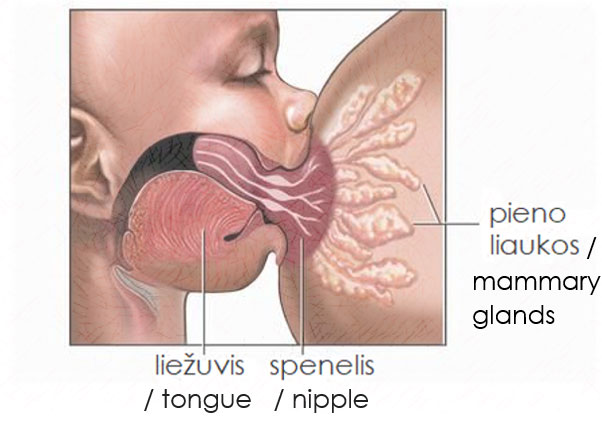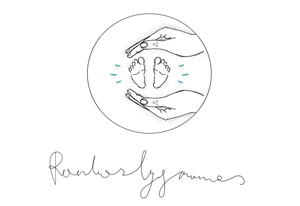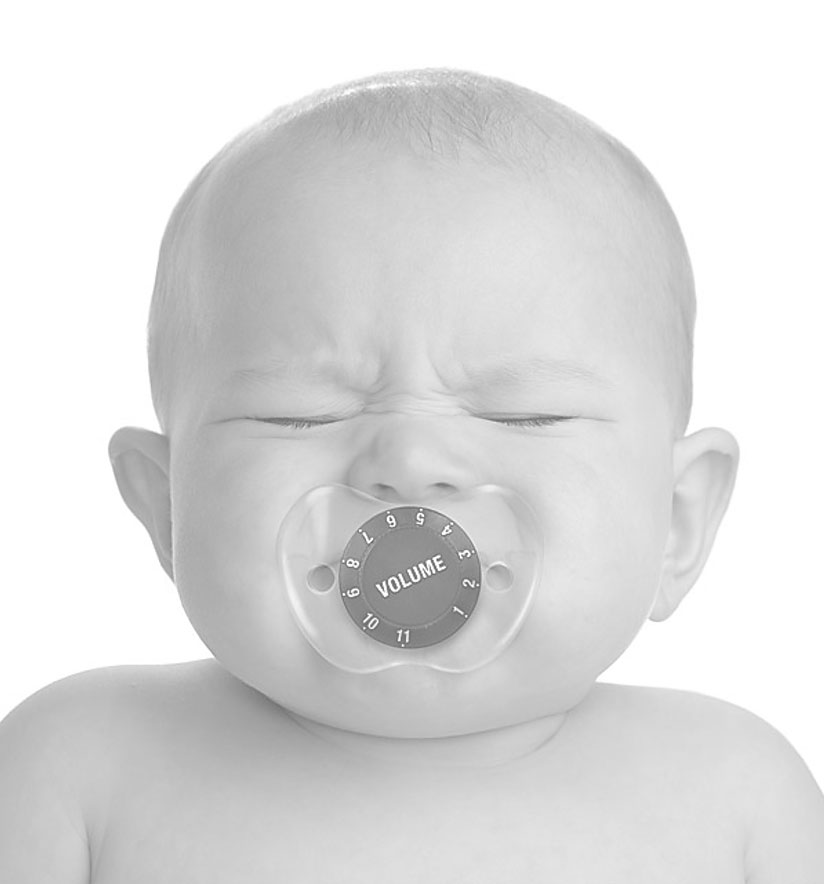This question reminds me of Shakespeare’s Hamlet play, which is dominated by issues of the main character’s existence – to be or not to be. Being or not can be interpreted with a pacifier.
I have no doubt that every family is facing the situation with a pacifier. And how should it be done and will it be the right decision?
First of all, I want to say that this is just my opinion. Every mother chooses and decides what is best for her child, in this case – to give or not to give a pacifier? Still, I would prefer not to give a pacifier. I’ll give definitions to make it easier to understand.
Nursing – the process of feeding child with mothers breast milk.
Sucking – an innate reflex that a baby needs to satisfy while sucking his mother’s breast or sucking on a pacifier.
Why not to give a pacifier?

Simply speaking, sucking on the pacifier disrupts the natural process of breastfeeding, changes movement and the way how baby muscles work. When the baby is breastfeeding, his tongue is of great importance to go to the front, and the mouth must not only cover the nipple, but also part of the breast itself. During breastfeeding, the nipple is deep in the mouth, while baby is actively moving the lower jaw. And when a baby is given a pacifier, it is easier to suck than to breastfeed, and the tongue then does not do such an important job.
The baby gets used to sucking the pacifier, this method will make it easier for the baby, then it may be difficult to breastfeed, or the baby might even give up. Because the pacifier is simply impossible to suck the same as a breast, and then when trying to suck the breast, the baby starts sucking and gnawing nipple like on a pacifier. Then the breastfeeding for mother becomes painful, because the baby does it irregularly, this gentle, sore nipple, and sucks it. From the feeling of pain, the flow of milk diminishes in a reflexive way, and then the baby gets insufficient milk, trying to suck even more, which causes unpleasant sensations to the mother.
What to do when the baby is breastfeeding all the time, constantly on the chest, maybe then to offer a pacifier?
Imagine the situation – the mother produces a lot of milk, even more than the baby needs, it is natural that the baby will eat faster and feel full, also breasts will receive a signal that it should be produced less milk. And if it’s the opposite – the mom is producing not enough milk for the baby? How baby will act and how he/she will try to show it? Just by showing his/her emotion (crying) and doing action (breastfeeding). Baby can suck breast for a long time in order for the mother to make more milk. And if you try to give the pacifier instead of a breast, then the baby will show furiously that he/she wants more milk, but the mother will not produce more milk from that.
And if the child is constantly anxious, crying a lot, then what to do? Because it looks like a pacifier is the best way out.
It may also be that he wants to feel more close to you, wants attention, if the baby is just a few weeks old, he wants to feel safe, wants to be fed when he wants it (often enough) and he/she just needs a mother who will calm down next to falling asleep or will help to survive the fears. Pacifier in this case can interfere the deeper emotional connection between the baby and the mother.
Speaking of crying, babies are all different, after a few weeks you will see whether your child is calm, lets you get the job you want done, or on the contrary – he/she wants to be on your hands, want to be carried. The baby’s temperament gets visible exactly within 2 months, whether the child is more closed, likes to be alone, or shows joy and happiness when they are spoken to.
Returning to the question, the baby’s emotion, in this case crying – is an alarm. This may mean that the child wants something and some of his/her needs are not fulfilled. Is it attention, whether it’s hunger, diapers, pain, a sense of security or something else. You can try to calm baby down on your breast instead of a pacifier, and the baby should calm down after a bit of breastfeeding.
Or it maybe that the birth has an impact on such baby’s state, maybe it was long, protracted or vice versa, very fast. But it’s another topic.
You decided that there is no way without a pacifier?
If you think that without the pacifier there is no way out, make sure that you’re producing enough milk for your baby before you give it, it means that baby gains healthy weight and feels good. Rate everything 4-6 weeks after giving birth.
If you are feeding from a bottle, the need for breastfeeding is not satisfied for babies, because they eat quite quickly, are fed less often than breastfeeding, so therefore the pacifier should be given.
I recommend using the pacifier only for up to 1 year. Using pacifier for longer period then 1 year may cause:
-forming an irregular teeth occlusion, i.e., a gap remains in the front teeth,
-the pacifier impedes psychomotor development – gurgling, speech, expression of emotions.
It is important to know that when a child falls asleep or is calm, it should be pulled out and not left for a long.
The pacifier needs to be frequently disinfected and in no way cleaned by yours saliva, I have often seen mothers put a pacifier in her mouth and then give it to the child. Do not forget that you are transferring germs to your baby, including those who damage teeth and cause thrush.
How to wean from the pacifier?
To wean it, you don’t have to do it through coercion, not letting or shouting at the child. You can come up with a story, I read that one mother cut off the tip of the pacifier and said that the mouse ate it. I remember myself that I was sucking pacifier for a very long time, my mom said it was hard to wean of. The way was simple, my mother’s brother just took it from me and threw it into the fire, then my grandmother said to me that there is no pacifier anymore in those times a simple household technique was used (chi, chi).

